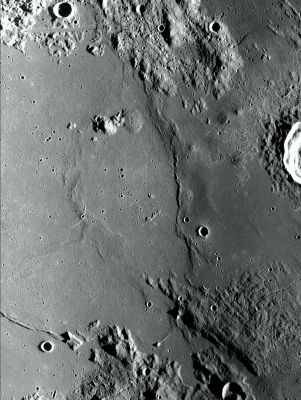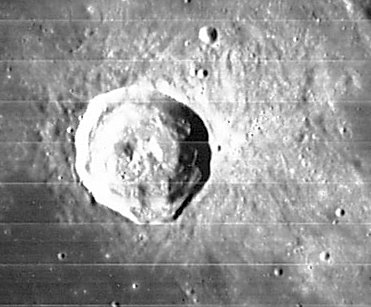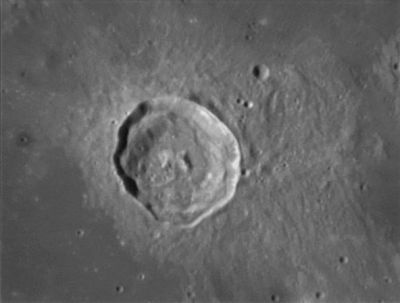Difference between revisions of "Manilius"
| Line 6: | Line 6: | ||
|- | |- | ||
| | | | ||
| − | [[Image: | + | [[Image:Manilius-lo-iv_097_h2.jpg|external image manilius-lo-iv_097_h2.jpg]]<br /> |
| | | | ||
| − | [http://www.lpod.org/coppermine/albums/userpics/manilius_011007_03h03tu.jpg [[Image: | + | [http://www.lpod.org/coppermine/albums/userpics/manilius_011007_03h03tu.jpg [[Image:Normal_manilius_011007_03h03tu.jpg|external image normal_manilius_011007_03h03tu.jpg]]]<br /> |
|} | |} | ||
'''Left''': ''[http://lpod.org/coppermine/displayimage.php?pos=-136 LO-IV-097-H2]'' from Paolo Amoroso '''Right''': ''[http://lpod.org/coppermine/displayimage.php?pos=-2937 François Emond]'' The 5-km diameter crater to the northeast is '''Manilius G'''<br /> <br /> <div id="toc"> | '''Left''': ''[http://lpod.org/coppermine/displayimage.php?pos=-136 LO-IV-097-H2]'' from Paolo Amoroso '''Right''': ''[http://lpod.org/coppermine/displayimage.php?pos=-2937 François Emond]'' The 5-km diameter crater to the northeast is '''Manilius G'''<br /> <br /> <div id="toc"> | ||
| Line 19: | Line 19: | ||
<br /> | <br /> | ||
==Description: Elger== | ==Description: Elger== | ||
| − | ''([http://the-moon.us/wiki/IAU% | + | ''([http://the-moon.us/wiki/IAU%20directions IAU Directions])'' MANILIUS.--This, one of the most brilliant objects in the first quadrant, is about 25 miles in diameter, with walls nearly 8000 feet above the floor, which includes a bright central mountain. The inner slope of the border on the W. is much terraced and contains some depressions. There is a small isolated bright mountain 2000 feet high on the [http://the-moon.us/wiki/Mare%20Vaporum Mare Vaporum], some distance to the W.<br /> <br /> |
==Description: Wikipedia== | ==Description: Wikipedia== | ||
[http://en.wikipedia.org/wiki/Manilius_%28crater%29 Manilius]<br /> <br /> | [http://en.wikipedia.org/wiki/Manilius_%28crater%29 Manilius]<br /> <br /> | ||
==Additional Information== | ==Additional Information== | ||
| − | * Depth data from [http://the-moon.us/wiki/Kurt%20Fisher% | + | * Depth data from [http://the-moon.us/wiki/Kurt%20Fisher%20Crater%20Depths Kurt Fisher database] |
** Arthur, 1974: 3.06 km | ** Arthur, 1974: 3.06 km | ||
** Westfall, 2000: 3.06 km | ** Westfall, 2000: 3.06 km | ||
| Line 33: | Line 33: | ||
* TSI = 30, CPI = 15, FI = 25; MI =70 [http://the-moon.us/wiki/Smith%20and%20Sanchez%2C%201973 Smith and Sanchez, 1973] | * TSI = 30, CPI = 15, FI = 25; MI =70 [http://the-moon.us/wiki/Smith%20and%20Sanchez%2C%201973 Smith and Sanchez, 1973] | ||
* '''Manilius domes''' in the region (a slice of '''Manilius''' crater is seen on right edge of image). | * '''Manilius domes''' in the region (a slice of '''Manilius''' crater is seen on right edge of image). | ||
| − | ** [http://www.lpod.org/coppermine/displayimage.php?pid=4786&fullsize=1 [[Image: | + | ** [http://www.lpod.org/coppermine/displayimage.php?pid=4786&fullsize=1 [[Image:Normal_manilius-domes.jpg|external image normal_manilius-domes.jpg]]] |
** ''[http://lroc.sese.asu.edu/index.html LROC]'' mosaic image from both WAC No. [http://wms.lroc.asu.edu/lroc/view_lroc/LRO-L-LROC-2-EDR-V1.0/M116282898ME M116282898ME] and WAC No. [http://wms.lroc.asu.edu/lroc/view_lroc/LRO-L-LROC-2-EDR-V1.0/M116269338ME M116269338ME] (unofficial image, stacked using the [http://ltvt.wikispaces.com/Utility%20Programs#WAC_Viewer LROC_WAC_Previewer] software - <span class="membersnap">- [http://www.wikispaces.com/user/view/JohnMoore2 [[Image:JohnMoore2-lg.jpg|16px|JohnMoore2]]] [http://www.wikispaces.com/user/view/JohnMoore2 JohnMoore2]</span>). | ** ''[http://lroc.sese.asu.edu/index.html LROC]'' mosaic image from both WAC No. [http://wms.lroc.asu.edu/lroc/view_lroc/LRO-L-LROC-2-EDR-V1.0/M116282898ME M116282898ME] and WAC No. [http://wms.lroc.asu.edu/lroc/view_lroc/LRO-L-LROC-2-EDR-V1.0/M116269338ME M116269338ME] (unofficial image, stacked using the [http://ltvt.wikispaces.com/Utility%20Programs#WAC_Viewer LROC_WAC_Previewer] software - <span class="membersnap">- [http://www.wikispaces.com/user/view/JohnMoore2 [[Image:JohnMoore2-lg.jpg|16px|JohnMoore2]]] [http://www.wikispaces.com/user/view/JohnMoore2 JohnMoore2]</span>). | ||
<br /> | <br /> | ||
Revision as of 02:03, 16 April 2018
Contents
Manilius
|
Lat: 14.5°N, Long: 9.1°E, Diam: 38 km, Depth: 3.06 km, Rükl: 23, Eratosthenian | |
Images
LPOD Photo Gallery Lunar Orbiter Images Apollo Images
Warning: several orbital photographs of Manilius and environs, made with Apollo 15's panoramic ITEK-camera, are online in the LPI's Apollo Image Atlas as "Manilus" instead of Manilius. - DannyCaes Feb 17, 2012
- Apollo 15's panoramic ITEK-camera frame AS15-P-10169 shows a close up of the unnamed dark halo crater immediately west of Manilius.
Research: Danny Caes
Maps
(LAC zone 59B2) LAC map Geologic map
Description
Description: Elger
(IAU Directions) MANILIUS.--This, one of the most brilliant objects in the first quadrant, is about 25 miles in diameter, with walls nearly 8000 feet above the floor, which includes a bright central mountain. The inner slope of the border on the W. is much terraced and contains some depressions. There is a small isolated bright mountain 2000 feet high on the Mare Vaporum, some distance to the W.
Description: Wikipedia
Additional Information
- Depth data from Kurt Fisher database
- Arthur, 1974: 3.06 km
- Westfall, 2000: 3.06 km
- Viscardy, 1985: 3.1 km
- Cherrington, 1969: 2.83 km
- Central peak composition: A (Tompkins & Pieters, 1999)
- A dark-halo craterlet slightly west of Manilius was captured on Hasselblad image AS15-93-12683. This dark-halo craterlet is a good test object for telescopic observers of the Full Moon. Research: Danny Caes.
- Included in ALPO list of bright ray craters
- TSI = 30, CPI = 15, FI = 25; MI =70 Smith and Sanchez, 1973
- Manilius domes in the region (a slice of Manilius crater is seen on right edge of image).

- LROC mosaic image from both WAC No. M116282898ME and WAC No. M116269338ME (unofficial image, stacked using the LROC_WAC_Previewer software - - JohnMoore2 JohnMoore2).
Manilius 1 and Manilius 2 (Irregular Mare Patches -IMPs- west of Manilius)
- Manilius 1 (number 30 in the catalog of 70 IMPs) is detectable at Latitude 14.889 / Longitude 6.467.
- Manilius 2 (number 37) is detectable at Latitude 14.628 / Longitude 6.821.
- Warning: both Manilius 1 and 2 are very small formations. The diameter of Manilius 1 is 270 meters, Manilius 2 is 200 meters.
Nomenclature
- Named for Marcus Manilius (fl. 1st century AD), a Roman poet, astrologer, and author of a poem in five books called Astronomica.
- This name has continued unchanged since its original usage for this feature on Riccioli's map (Whitaker, p. 213).
- An officially unnamed rille just south of Manilius is called Rima Pau by the dedicated moon observer K.C.Pau.
LPOD Articles
Bibliography

